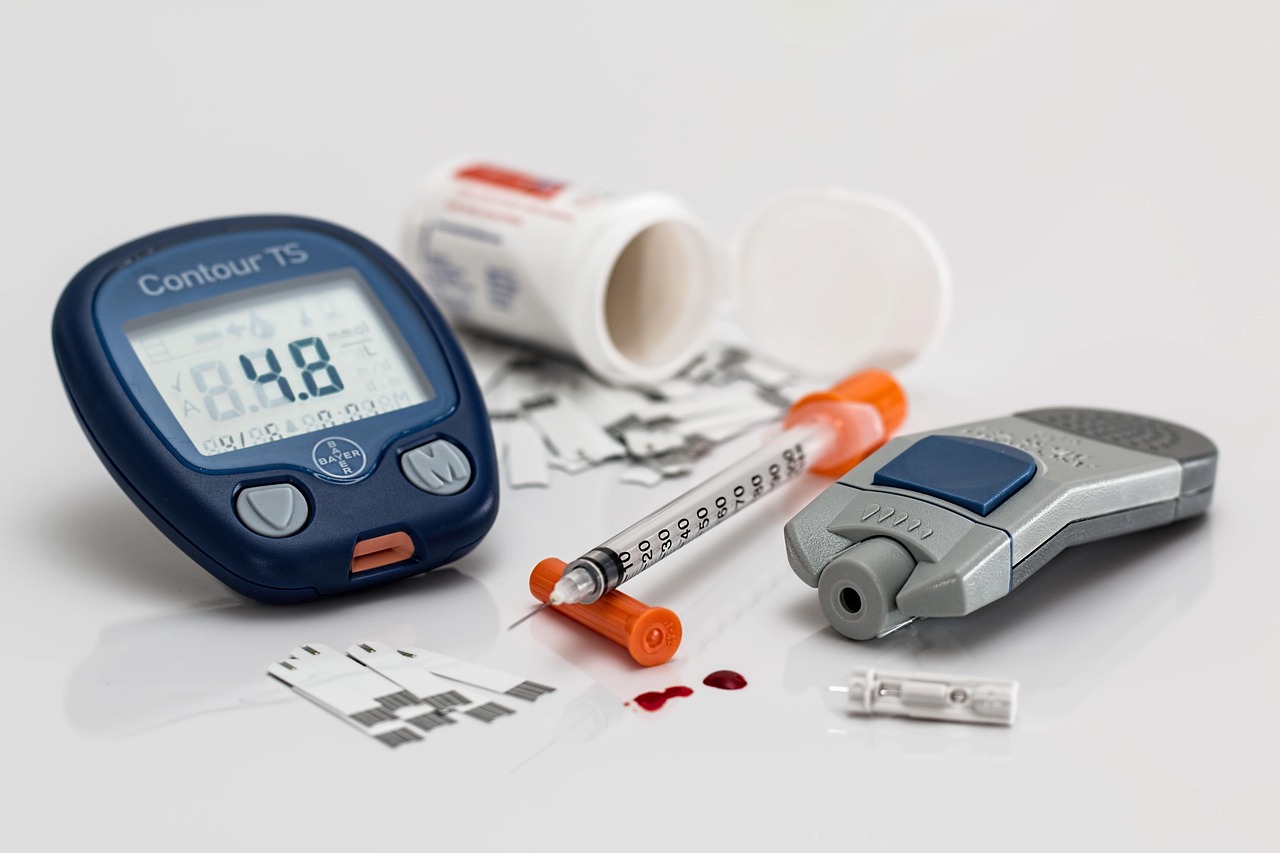Diabetes and heart disease are closely linked, and having diabetes significantly increases the risk of developing cardiovascular problems. High blood sugar levels over time can damage blood vessels and the heart, making it essential to manage diabetes effectively to protect your heart health.
In this article, we’ll explore the connection between diabetes and heart disease, why diabetics are at higher risk, and the best strategies to prevent heart complications.
.
How Does Diabetes Affect the Heart?
Diabetes, particularly type 2 diabetes, affects how the body processes blood sugar (glucose). When blood sugar levels are consistently high, it can lead to serious damage to the cardiovascular system. Here’s how:
1. High Blood Sugar Damages Blood Vessels
- Over time, excess glucose in the blood can weaken and stiffen arteries, making them more prone to plaque buildup and blockages.
- This can lead to atherosclerosis, a condition where arteries narrow, increasing the risk of a heart attack or stroke.
2. Increased Risk of High Blood Pressure
- Many people with diabetes also have hypertension (high blood pressure), which forces the heart to work harder and can lead to heart failure.
- High blood pressure combined with diabetes significantly increases the risk of heart disease.
3. Higher Levels of Bad Cholesterol (LDL) and Lower Good Cholesterol (HDL)
- Diabetes is often associated with unhealthy cholesterol levels, including high LDL (bad cholesterol) and low HDL (good cholesterol).
- This imbalance contributes to plaque buildup in the arteries, further increasing cardiovascular risk.
4. Increased Risk of Inflammation and Blood Clots
- Diabetes triggers chronic inflammation, which damages blood vessels and increases the risk of heart disease.
- High blood sugar can also lead to thicker blood, making it more likely to form clots that can block arteries.
5. Nerve Damage May Mask Heart Attack Symptoms
- Diabetes can cause nerve damage (neuropathy), which may make heart attack symptoms less noticeable.
- Many diabetics experience “silent” heart attacks with mild or no symptoms, delaying treatment
.
Diabetes and Heart Disease: Who is at Risk?
Anyone with diabetes is at a higher risk of heart disease, but certain factors increase the likelihood:
✔️ Poorly managed blood sugar levels
✔️ High blood pressure (hypertension)
✔️ High cholesterol and triglyceride levels
✔️ Being overweight or obese
✔️ Smoking or excessive alcohol consumption
✔️ Lack of physical activity
✔️ Family history of heart disease
The good news? Heart disease is preventable—even if you have diabetes!

How to Reduce Heart Disease Risk if You Have Diabetes
Managing diabetes effectively is key to protecting your heart. Here are science-backed strategies to lower your risk:
1. Keep Blood Sugar Levels Under Control
✅ Why It Helps:
Maintaining stable blood sugar levels prevents damage to blood vessels and reduces the risk of cardiovascular disease.
🔥 How to Do It:
- Monitor blood sugar levels regularly.
- Follow a low-glycemic diet that avoids refined sugars and processed foods.
- Take medications or insulin as prescribed.
2. Adopt a Heart-Healthy Diet
✅ Why It Helps:
A nutritious diet helps lower cholesterol, reduce blood pressure, and stabilize blood sugar.
🔥 Best Foods for Heart & Diabetes Health:
✔️ Leafy greens (spinach, kale, Swiss chard) – High in antioxidants and fiber.
✔️ Fatty fish (salmon, sardines, mackerel) – Rich in omega-3s to lower inflammation.
✔️ Whole grains (quinoa, oats, brown rice) – Help regulate blood sugar.
✔️ Nuts and seeds (almonds, walnuts, flaxseeds) – Provide healthy fats and fiber.
✔️ Avocados and olive oil – Support heart health with monounsaturated fats.
🔥 Foods to Avoid:
❌ Refined sugars and white bread
❌ Processed snacks and fast food
❌ Sugary drinks and sodas
❌ Fried foods and trans fats
3. Stay Active with Regular Exercise
✅ Why It Helps:
Exercise improves insulin sensitivity, lowers blood pressure, and strengthens the heart.
🔥 Best Exercises:
✔️ Brisk walking (30 minutes daily)
✔️ Strength training (2-3 times per week)
✔️ Yoga or stretching exercises to reduce stress
4. Maintain a Healthy Weight
✅ Why It Helps:
Losing even 5-10% of body weight can significantly improve heart health and diabetes management.
🔥 How to Do It:
- Focus on portion control and balanced meals.
- Stay consistent with physical activity.
- Drink plenty of water and avoid sugary drinks.
5. Manage Blood Pressure and Cholesterol
✅ Why It Helps:
High blood pressure and cholesterol increase the risk of heart disease, so keeping them in check is crucial.
🔥 How to Do It:
- Reduce salt intake to lower blood pressure.
- Increase fiber intake to improve cholesterol levels.
- Take medications as prescribed, if needed.
6. Reduce Stress
✅ Why It Helps:
Stress raises cortisol levels, which can lead to high blood pressure and blood sugar spikes.
🔥 Best Stress Management Techniques:
✔️ Deep breathing exercises
✔️ Meditation and mindfulness
✔️ Spending time in nature
✔️ Talking to a friend or therapist
7. Quit Smoking and Limit Alcohol
✅ Why It Helps:
Smoking damages blood vessels and increases the risk of heart disease, while excessive alcohol raises blood sugar and blood pressure.
🔥 How to Quit:
- Seek support groups or counseling for smoking cessation.
- Replace alcohol with healthy alternatives like herbal teas or infused water.
Final Thoughts
Diabetes and heart disease are closely linked, but the right lifestyle changes can significantly lower your risk. By managing blood sugar, adopting a heart-healthy diet, exercising regularly, and reducing stress, you can protect your heart and improve your quality of life.
📌 Take Action Today: Start by making one small change, like swapping sugary drinks for water or taking a 10-minute walk. Small steps lead to big heart-health benefits!
Would you like personalized supplement recommendations for heart and diabetes support? 🚀
Remember, you don’t need to overhaul your diet overnight. Start with small, manageable changes—like swapping white bread for whole grain or adding an extra serving of veggies to your dinner plate.
Complement your heart-healthy diet with supplements like CardioForLife Powder to fill in any nutritional gaps and support overall cardiovascular health.





